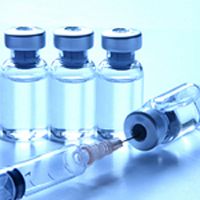Article
Patients with Suspected mRNA Vaccine Allergy Recommended for Revaccination
Author(s):
This research letter highlighted the results of an allergy work-up and of vaccinations for COVID-19 in patients with a suspicion of mRNA vaccine hypersensitivity.

Patients with suspected allergy to COVID-19-mRNA vaccines had mild manifestations—with severe anaphylactic reactions being rare—and should likely be revaccinated, according to recent findings.1
The research was the result of an allergy work up assessing the outcomes of subsequent COVID-19 vaccinations for patients reporting suspected hypersensitivity to COVID-19-mRNA vaccines.
The research was conducted to determine risk factors for anaphylaxis at the next dose. The work-up and its analysis was authored by Angèle Soria, MD, PhD, from the Médecine Sorbonne Université in Paris.
“The mechanisms of allergic reactions to COVID-19-mRNA vaccines have not been elucidated,” Soria and colleagues wrote. “Polyethylene glycol (PEG) allergies through IgE activation and a complement activation-related pseudoallergy (CARPA) mechanism have been suggested.”
Background and Findings
The investigators recruited 190 total patients from May of 2021 to May of 2022, using 2 allergy centers in France and Spain, with the patients having suspected allergy to COVID-19 mRNA vaccines. The study participants included 180 females (95%), with an average age of 51 years.
The research team evaluated the medical history of these patients in detail, finding that 69 of the patients had immediate reactions compatible with hypersensitivity and 84 had delayed reactions that were also compatible with hypersensitivity.
The team also reported that 37 patients had reactions that were not suggestive of hypersensitivity. The study found that 31 patients were identified with index anaphylaxis, which accounted for 16% of the cases, and only 3 of these patients had severe anaphylaxis.
They reported that every anaphylaxis episode occurred within a single hour following vaccine administration, with the severe episodes happening in less than 15 minutes.
The allergy evaluation for all of the study participants involved skin tests with the COVID-19-mRNA vaccine and polyethylene glycol (PEG) allergies of different molecular weights ranging from 400 to 4000, and they performed basophil activation tests to PEG-2000 MW in the 45 out of 69 participants that had immediate reactions.
Overall, the investigators reported that 4.7% (9 patients) showed positive work-ups, with 4 of these participants having positive tests to PEGs skin tests, 1 to mRNA vaccine skin test, and 5 to PEG2000 basophil activation tests.
Out of the 160 patients who were given revaccinations, 84% showed good tolerance, 87% of whom had been given antihistamine premedication. The researchers added that participants refused further COVID-19 vaccination.
In 145 patients, the investigators performed revaccination with the same vaccine, which was shown to be well-tolerated in 126 participants. They added that participants received an alternative COVID-19 vaccine—12 of which were other mRNA vaccines–and among the 31 participants who reported anaphylaxis, 23 were revaccinated with the same vaccine, with good tolerance in 65% of cases.
The 8 immediate reactions after revaccination were found to be less severe than the index reaction, and among the 5 participants with positive PEGs- or vaccine skin tests, 2 were found to have tolerated another COVID-19-mRNA vaccine, 2 were found to have tolerated another vaccine for COVID-19, and a single participant refused to have any other vaccinations.
The investigators added that despite having a positive PEG2000-basophil activation test, 2 were found to have tolerated either the same vaccine or another COVID-19 vaccine.
“The majority of patients suspected of allergy to COVID-19-mRNA vaccines exhibited mild manifestations,” they wrote. “Severe anaphylactic reactions appear to be rare; the severity and the occurrence of the reaction within one hour after vaccine are crucial to establish the risk stratification of an allergic reaction to COVID-19-mRNA vaccine.”
References
- Soria, A., Labella, M., Doña, I., Nicaise-Roland, P., Chollet-Martin, S., Autegarden, J.-E., Castagna, J., Le Thai, C., de Chaisemartin, L., Torres, M.J. and Barbaud, A. (2023), Risk stratification through extensive allergy work-up in COVID-19-mRNA vaccine allergic reactions. Allergy. https://doi.org/10.1111/all.15715.





